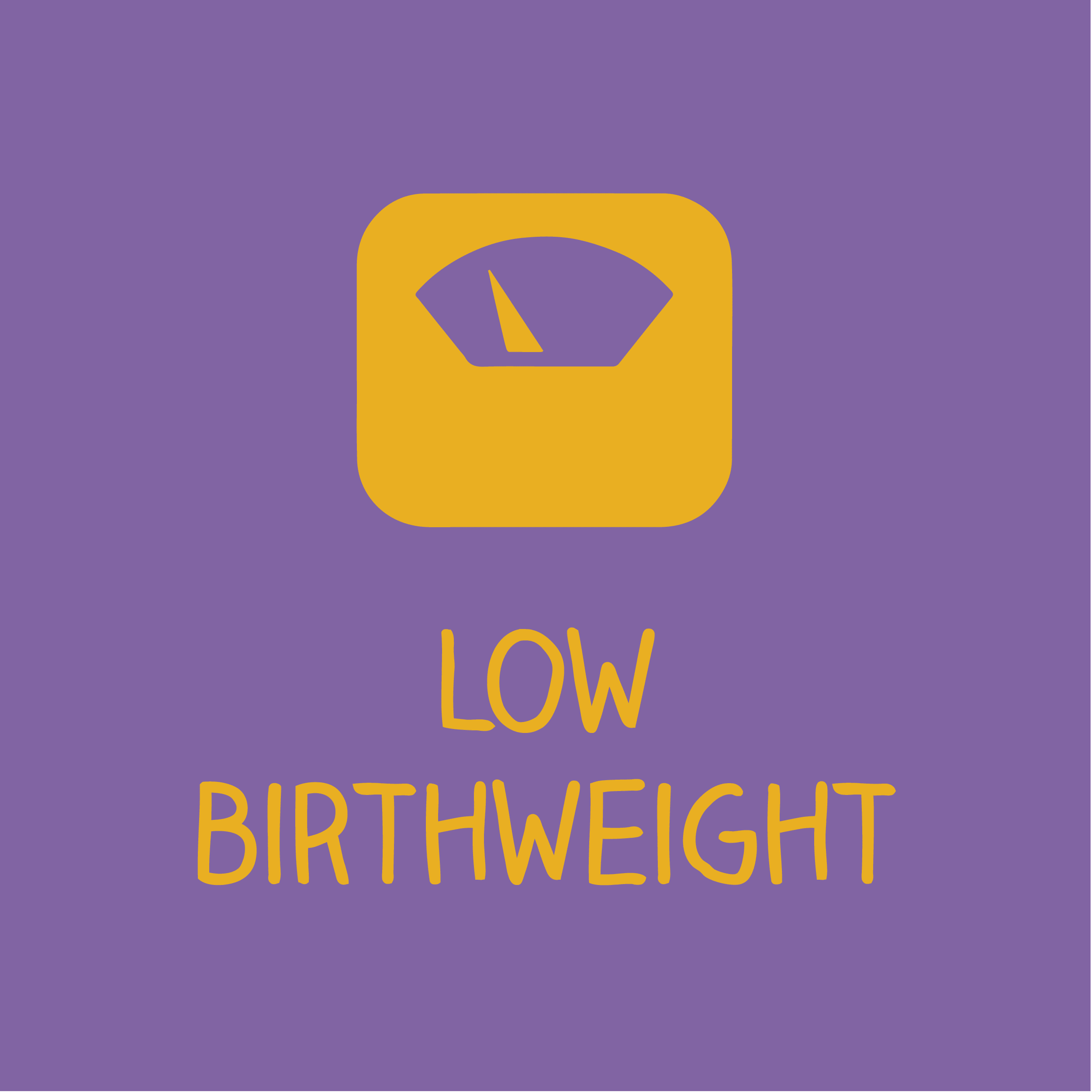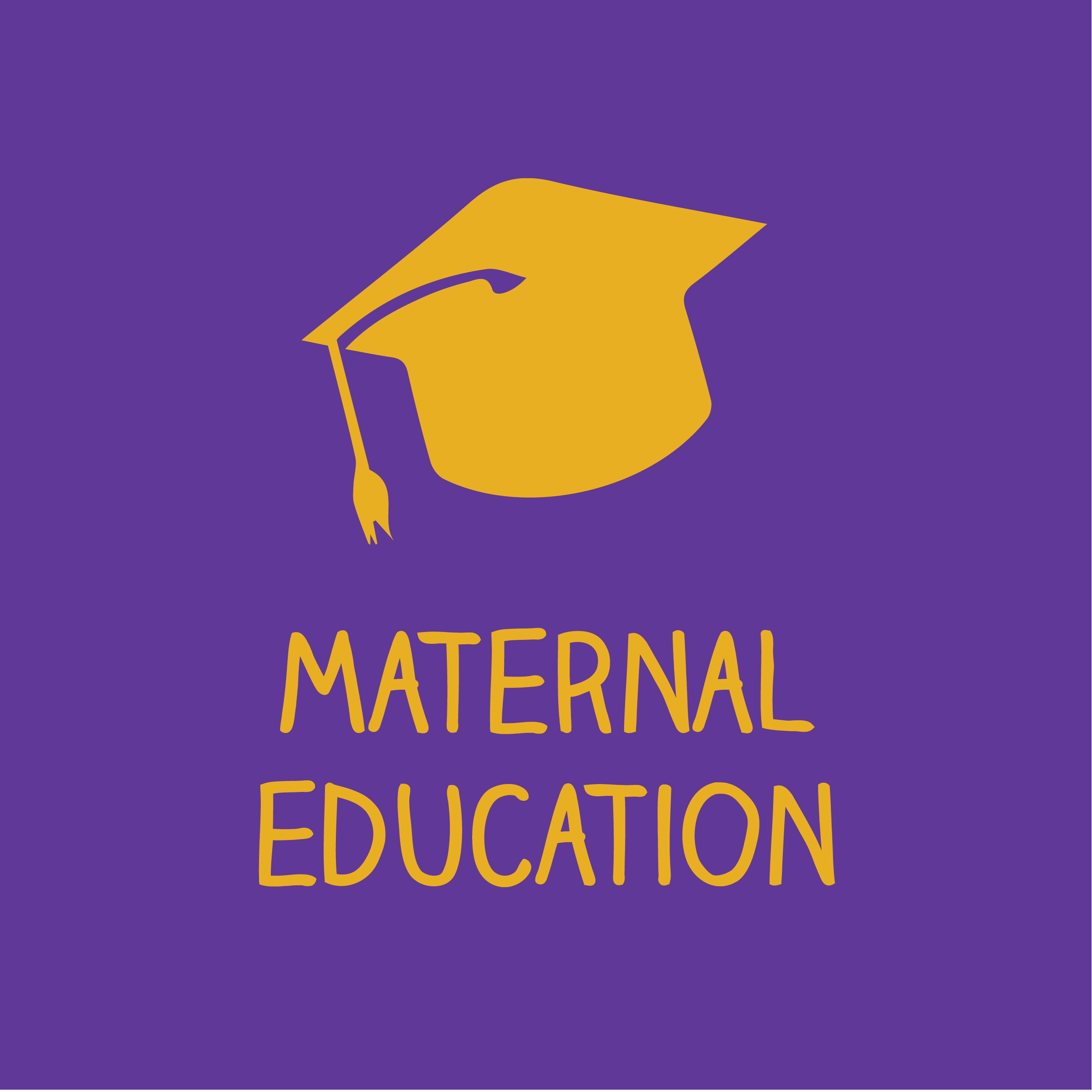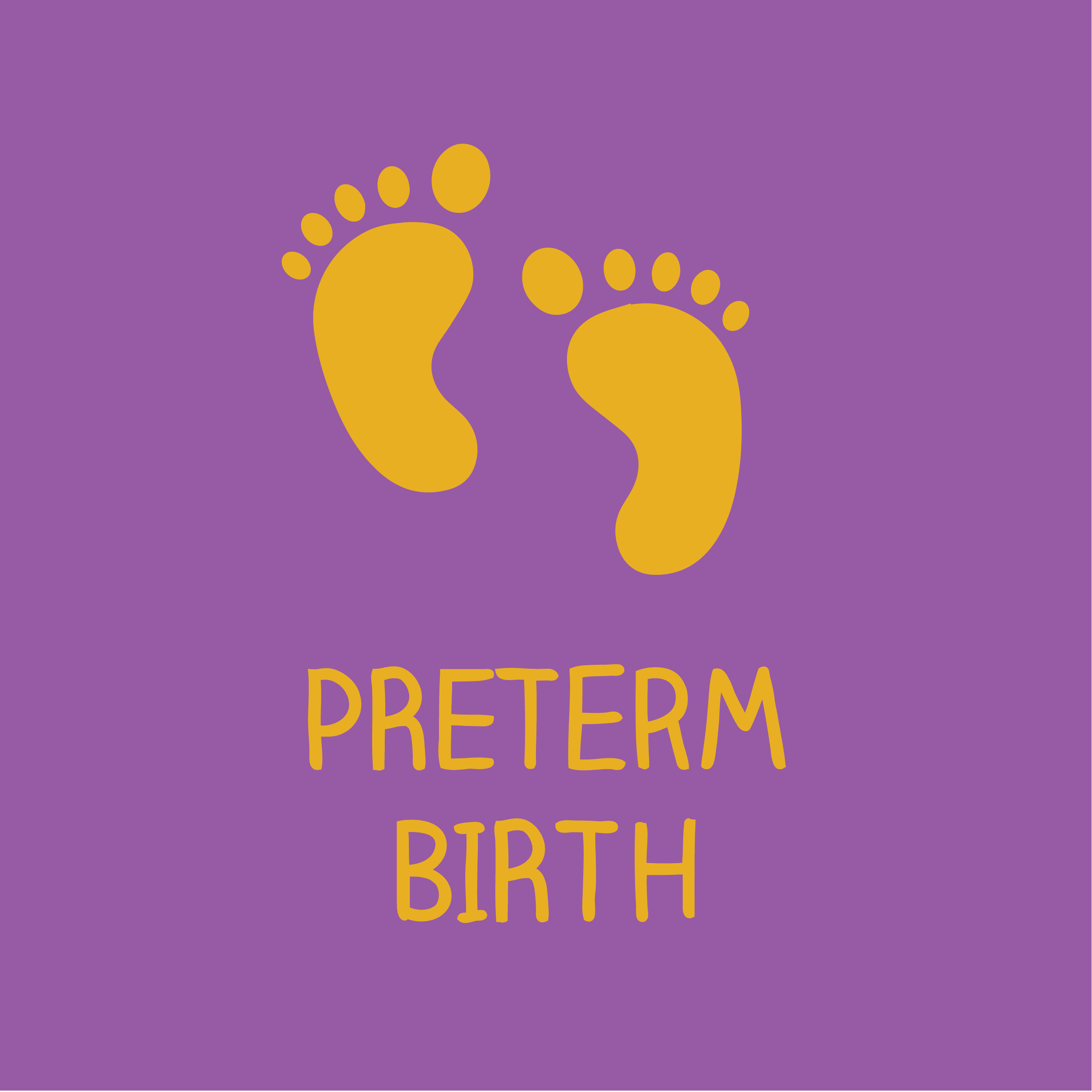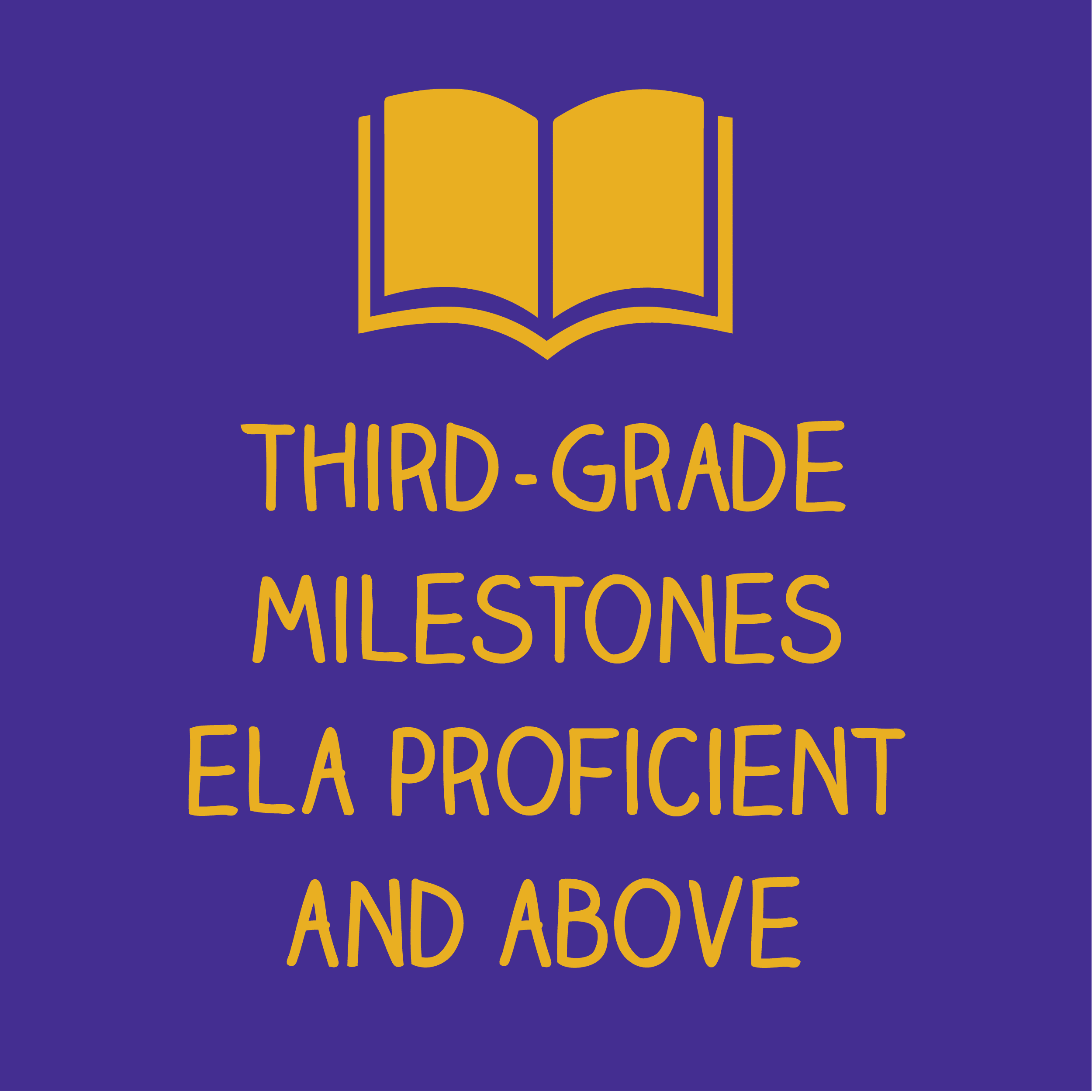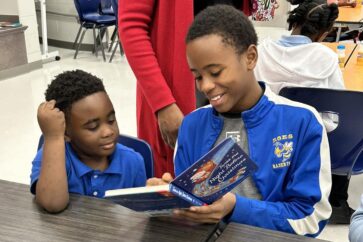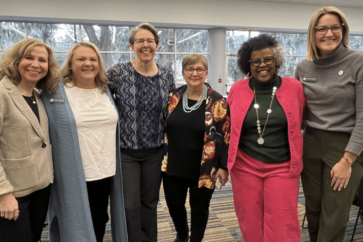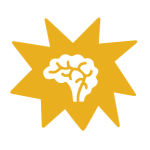
All children experience abundant, positive, language-rich social interactions with caregivers, educators, and peers.
The Expectation
We believe all children should receive crucial adult-child interactions from birth. In the first few years of life, babies’ brains are forming the neural connections for language that shape their capacity to read by third grade and subsequently access their full potential.
The Why
During the first three years of life, the brain undergoes its most dramatic development, forming more neural connections than at any other time period.
When this early development isn’t nurtured, the brain’s architecture is adversely affected and young children fall behind in their development and learning. A major ingredient of this developmental process is the “serve and return”—or back-and-forth communication exchange between infants and parents and other caregivers. Because babies can’t talk at birth, their communication includes eye contact, facial expressions, crying, laughing, touch, and more.
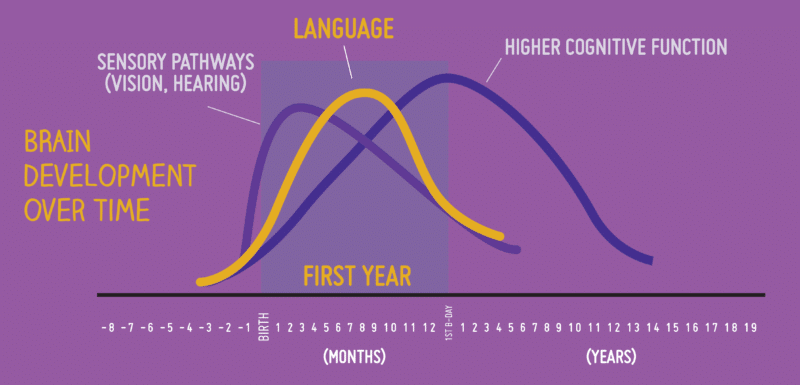
The Science
Early language exposure sets the foundation for cognitive ability, literacy, and school readiness—and it’s the strongest predictor of third-grade reading proficiency.
Not every child is exposed to a rich language environment. Children from low-income families hear approximately 600 words every hour—1,400 fewer than children in higher-income families. This disparity, which eventually becomes a “30-million word gap,” leads to dramatic differences in vocabularies of 18-month-olds, which increase significantly between 18 months and 24 months.
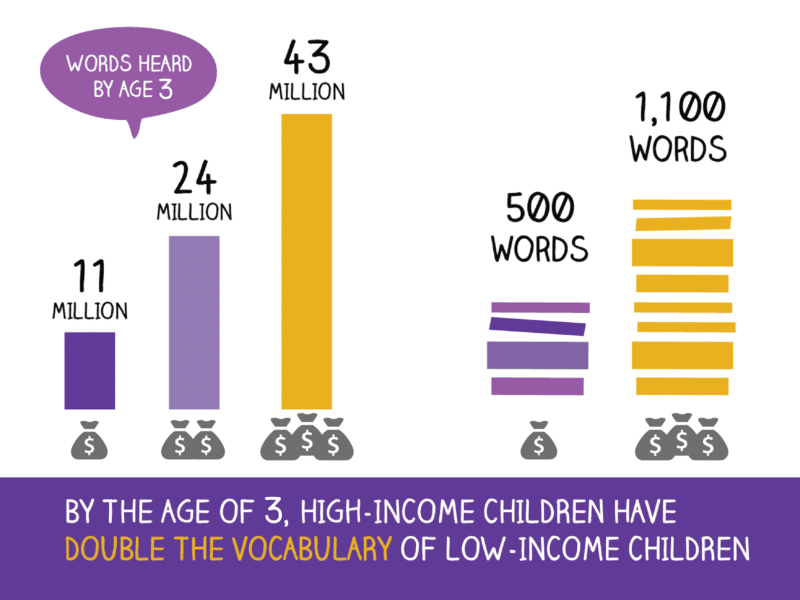
Language Nutrition is effective in any language. Parents and caregivers of “dual-language learners,” or children developing in their home language and in English, should speak in the language they are most comfortable with, whether or not it’s English.
Extensive research highlights the benefits that speaking more than one language has in many areas of development, including cognitive function. Research shows that when families believe they can influence their child’s outcomes, the quality of their interactions increases.
The Value
Recognizing that both quantity and quality of language are as critical to brain development as healthy food is to physical growth, we believe all parents have a voice that matters and the potential to be their child’s first and best teacher. We will achieve our goal by building capacity in parents and caregivers to impart language to their children.
How Are We Doing?
Check out this population-level data indicating current conditions related to early brain development and the need to promote Language Nutrition.
Learn from the Experts
How Are the Children?
Ellyn Cochran, United Way of Greater Atlanta’s senior director of Early Learning and Development, says all Get Georgia Reading Campaign communities need to rethink this question when assessing children’s well being.
Fueling A Love of Learning
Emily Rubin, director of Marcus Autism Center’s Educational Outreach Program, emphasizes the importance of creating a positive learning environment where social-emotional engagement is the fuel for a child’s learning.
Improving Literacy by Listening
Suzanne Harbin, director of the Early Childhood Initiative at the Community Foundation of Northwest Georgia, shares a vital lesson about the importance of talking to and listening to families.
Planting Seeds of Change in Georgia
State Rep. Randy Nix says that if Georgia is going to continue to thrive and be the No. 1 place in the country to do business, failure in getting all kids on the path to reading proficiency by third grade is simply not an option.
Investing in Early Brain Development
Marcus Autism Center Director Ami Klin reveals the active ingredient for changing the narrative of autism from one of disability to one of possibility.
The Power and Magic of Reading and Learning
Sara Lee Crumbs, Quitman County Family Connection coordinator, said something magical happens when likeminded individuals who believe in the power of learning and literacy come together and decide to meet parents where they are.
Shared Reading Program Supports Families in NICU and Beyond
Emory’s Angela Leon-Hernandez says families reading aloud to babies born prematurely has a long-term effect on language and social development, early literacy skills, and school readiness.
Early Autism Screening Can Improve Reading Proficiency
Marcus Autism Center Director Ami Klin explains why ensuring social milestones is a critical first step toward third-grade reading.
Improving Early Child Development with Words
Brenda Fitzgerald, commissioner of the Georgia Department of Public Health, is leveraging the simple practice of talking to babies and toddlers to nourish their brains and set them up for better performance in school and life.
Meet Baby Ella and Learn How Talk With Me Baby is Helping Her and Other Babies Succeed
Did you know that talking with your baby helps your baby’s brain grow?
30 Million Words: Building the Architecture of the Brain
Georgia Department of Public Health Commissioner Brenda Fitzgerald shows how the state’s high school drop-out rate is linked to early brain development and what we can do to change this trajectory.
What Happens to Children Who Are Born Too Soon
Lucky Jain, chair of the Department of Pediatrics at Emory University School of Medicine, describes the effects of preterm birth on a child’s capacity to learn.
What’s Happening?
Your stories are important! Share them with us and inspire others to take action.
Partner Resources
- Chat About Children: This educational series for families from DECAL features episodes on monitoring development, supporting transition back to child care and school, building your young child’s brain, engaging children in play, how early language builds literacy, and more.
- Ferst Foundation for Childhood Literacy: FFCL provides books for local communities to prepare all Georgia children ages 0-5 for reading and learning success.
- Georgia Pathway to Language and Literacy: This Community of Practice (CoP) comprised of professionals, advocates, and parents serves deaf and hard-of-hearing students throughout Georgia.
- Georgia Public Library Directory: Use this search tool to find a public library near you.
- Great Start Georgia: Parents expecting a baby or families with young children can learn about all the services in their community they can turn to when needed.
- 1,000 Books B4 Kindergarten: Public libraries across the state encourage parents to read 1,000 books with their children before the age of 5 through this fun and easy program.
- Reach Out and Read Georgia: Young children receive a foundation for success by incorporating books into pediatric care and encouraging families to read aloud together. Find a program near you.
- Read Right from the Start: These resources from the Rollins Center for Language and Literacy are for parents and educators including a Cox Campus training link.
- Talk With Me Baby: This Georgia-based collaborative works to ensure all infants and children receive abundant Language Nutrition to support early brain development. They have developed a wide array of resources for parents, caregivers, nurses, educators, and concerned citizens.
- Words2Reading: Words2Reading brings families, caregivers, and teachers the best resources in developing early language skills and reading readiness from birth to age 8. Grow your young reader through easy-to-follow videos, web links, downloadable documents, e-books, and audio clips all available online.
Need more assistance? Check out additional Campaign resources.
Check out the Bibliography of Scholarly & Related Articles.

